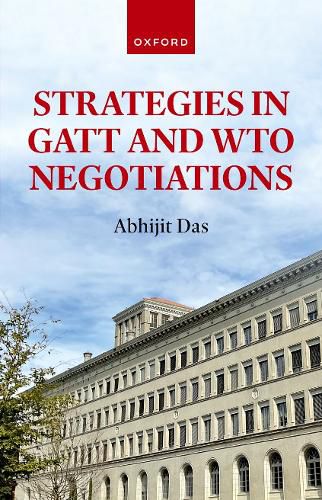Readings Newsletter
Become a Readings Member to make your shopping experience even easier.
Sign in or sign up for free!
You’re not far away from qualifying for FREE standard shipping within Australia
You’ve qualified for FREE standard shipping within Australia
The cart is loading…






Over the past seven decades, the outcome of international trade negotiations at the General Agreement on Tariffs and Trade (GATT) and the World Trade Organization (WTO) have significantly influenced economic policymaking world over. With unparalleled access to first-hand accounts of key negotiators from India and other developing countries,Strategies in GATT and WTO Negotiations systematically identifies and analyses the strategies and tactics deployed by the main players at the GATT/WTO negotiating table, particularly from the perspective of developing countries. It decodes the role that strategy plays in the developed countries prevailing in WTO negotiations on most occasions and demystifies the factors and strategies underlying the rare successes of many developing countries in countering entrenched power dynamics at the GATT and WTO negotiating table. Moreover, it includes a fascinating analysis of action behind the scenes and the strategies deployed by many developing countries in securing their key negotiating objectives on three specific issues in the Doha Round of the WTO, namely, the Singapore issues, agriculture, and food security.
$9.00 standard shipping within Australia
FREE standard shipping within Australia for orders over $100.00
Express & International shipping calculated at checkout
Over the past seven decades, the outcome of international trade negotiations at the General Agreement on Tariffs and Trade (GATT) and the World Trade Organization (WTO) have significantly influenced economic policymaking world over. With unparalleled access to first-hand accounts of key negotiators from India and other developing countries,Strategies in GATT and WTO Negotiations systematically identifies and analyses the strategies and tactics deployed by the main players at the GATT/WTO negotiating table, particularly from the perspective of developing countries. It decodes the role that strategy plays in the developed countries prevailing in WTO negotiations on most occasions and demystifies the factors and strategies underlying the rare successes of many developing countries in countering entrenched power dynamics at the GATT and WTO negotiating table. Moreover, it includes a fascinating analysis of action behind the scenes and the strategies deployed by many developing countries in securing their key negotiating objectives on three specific issues in the Doha Round of the WTO, namely, the Singapore issues, agriculture, and food security.